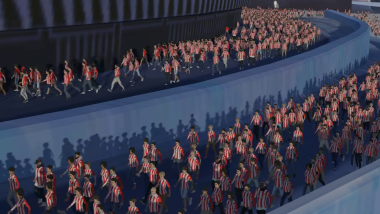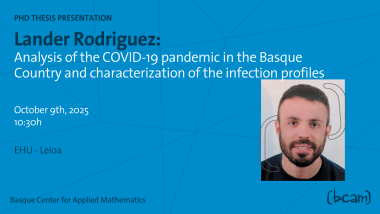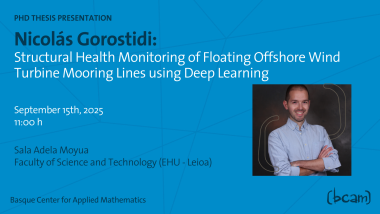Mathematical technology to reduce the ecological footprint
The project "Optimisation of the aluminium smelting process through mathematical technology" will study how aluminium recycling processes can be improved
At a national level, more than 300 kT/year of secondary aluminium is recovered in order to reintroduce it into the industrial sector for its various applications. It is a booming market in a context of raw material crisis. The need to reduce the ecological footprint and reduce the consumption of raw materials is imperative at a global level and an objective of RIS3 in the Basque Country. Small margins in the optimisation of their processing translate into large energy savings and waste reduction given their large volume of work.
At BCAM, Prof. Marco Ellero, Group Leader and Ikerbasque researcher, together with Imanol García De Beristain, Research Technician of the CFD Modelling and Simulation group, are working through the project "Optimisation of the aluminium smelting process through mathematical technology", from different axes to improve the modelling of aluminium with application in advanced manufacturing, aligned with the Basque Government's RIS3 strategy to improve the circular economy. This project has been funded by the Provincial Council of Bizkaia within the 2021 Technology Transfer Programme and is co-financed by the ERDF and supported by GHI Hornos Industriales.
Recently they have started modelling the secondary aluminium smelting process in reverberatory furnaces with the aim of improving their performance and reducing the slag generated. The modelling includes multiple physical phenomena that are difficult to measure in a real furnace: magnetohydrodynamics, combustion, oxidation, heat exchange and mechanical agitation. Each of these cases is studied in the project for the application of aluminium smelting. The aim of the project is to improve the fluid dynamic modelling of metal melting furnaces; aluminium in particular, but with methodology applicable to alloys, steel, zinc, etc.
Half a year into the project, the first results have been presented at the "Heat powered cycles!" congress by Gontzal López, Research technician at BCAM, and at least two publications are planned with the results obtained at an experimental level and the use in new simulations and their dissemination at future international congresses.
The collaboration between BCAM and GHI Hornos Industriales creates a way to improve existing models in aluminium fluid dynamics, advancing knowledge and developing mathematical technology. The data source that will be obtained will help a fundamental long-term objective, mathematical innovation in the integration of the Basque industrial fabric. BCAM already has previous experience in the field of aluminium recycling thanks to the Elkartek project "CIRCU-AL - Circular economy of metal resources" (KK-2020/00016), in collaboration with the University of the Basque Country - UPV/EHU and Tecnalia.
Related news
Ikerketa



